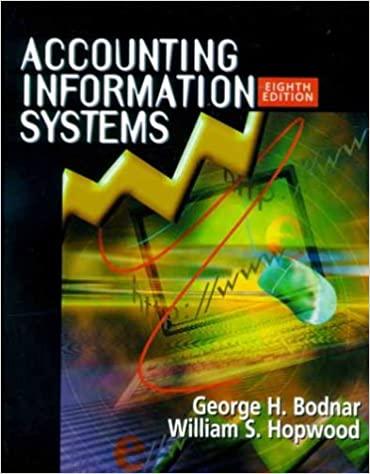Question
Volkswagens Clean Diesel Campaign Case Facts Owners of Volkswagen, Audi, and Porsche diesel cars were shocked to learn in September 2015 that their clean diesel
Volkswagens Clean Diesel Campaign
Case Facts Owners of Volkswagen, Audi, and Porsche diesel cars were shocked to learn in September 2015 that their clean diesel vehicles were not so clean after all. Under pressure from U.S. regulators, Volkswagen admitted it had fraudulently equipped certain VW, Audi, and Porsche diesel models with so-called defeat devices, software designed to cheat on government emissions tests. Cars marketed as environmentally friendly were in fact, unknown to their owners or the public, fouling the air with dangerous pollutants.
The marketing campaign was a great success. From 2009 to 2015, VW sold around 580,000 vehicles with the defeat device in the United States, including VW, Audi, and Porsche-branded TDI (diesel) models. Consumers paid a premium for these cars: a VW diesel cost on average $5,755 more than a comparably equipped gasoline version. (Some operating costs were lower, however, since diesels got better gas mileage.) Volkswagens deception began to unravel in 2013, when researchers from West Virginia University set out to study how much various cars polluted on the road, rather than in the lab. They were startled to discover that a VW Jetta and a VW Passat, both with diesel engines, emitted as much as 40 times the nitrogen oxides allowed under federal rules. California air regulators, alerted to these findings, began an investigation that led eventually to Volkswagens admission of fraud. Owners of the tainted vehicles suddenly faced difficult choices. They could continue driving their cars, knowing they were emitting dangerous pollutants way over the legal limit. They could attempt to sell their vehicles, but their value had dropped precipitously. Drivers with leases found themselves suddenly upside down, owing more on their contracts than their cars were worth. Hundreds of owners chose to sue Volkswagen. In 2016, these cases were consolidated in a single class action in federal court, representing all owners of the affected vehicles. Separately, the U.S. Justice Department and the Federal Trade Commission also sued Volkswagen. In a series of negotiated settlements, Volkswagen agreed to buy back the tainted vehicles (for what the cars were worth before the scandal broke) or to terminate their leases without penalty. If the customer preferred, the company would repair the vehicles emissions controls (although experts predicted that doing so would reduce performance and fuel economy). In either case, customers would receive additional restitution of five to ten thousand dollars. The total cost to Volkswagen was estimated at more than $15 billion.
1. In what ways were consumers (car owners) harmed by Volkswagens actions? 2. Did Volkswagen violate any U.S. consumer protection laws, and if so, which ones? 3. What were the potential benefits and risks to Volkswagen of its decision to defraud consumers and regulators? 4. If you were an owner of a VW, Audit, or Porsche vehicle equipped with a defeat device, what would be your options? What would you choose to do, and why? 5. What are the advantages and disadvantages to consumers of a class-action lawsuit of the kind described here? 6. Was the settlement fair to consumers, or not?
Said one owner of a diesel Jetta wagon, I was very interested in fuel economy and low emissions, and power, but I remember thinking when I bought the car that it almost seemed too good to be true. Now it turns out that it really was too good to be true. I feel completely duped. In 2007, Martin Winterkorn, the newly appointed CEO of Volkswagen, announced an ambitious goal: to become the worlds leading carmaker, pulling ahead of both Toyota and General Motors. A key element of the strategy was the rollout of a new generation of diesels in the United States. This would require the development of a new diesel engine that could deliver lively performance and good gas mileage, while also complying with tough U.S. limits on emissions of nitrogen oxides (a toxic pollutant that causes health problems and contributes to smog). The companys engineers struggled to meet this challenge within tight budgetary and time constraints. Finally, under increasing pressure, the engineers hit on a solution: software that could detect when the vehicle was undergoing emissions testing. When the vehicle was on rollers and its steering wheel immobilized, the emissions control equipment would be switched on, reducing pollution to permitted levels. At other timesthat is, during normal drivingthe emissions control equipment would be dialed down, allowing the car to achieve better mileage and sportier performance. Such defeat devices were explicitly prohibited under U.S. environmental law. To promote its new models, Volkswagen launched a major marketing campaign for its Clean Diesel TDI (turbocharged direct injection) technology. The campaigns purpose was to counteract the stigma associated with diesel engines and convince car buyers that VW diesels were fun to drive, economical, and environmentally responsible. Print ad tag lines included: This aint your daddys diesel: stinky, smoky, and sluggish; Diesel is no longer a dirty word: Diesel has really cleaned up its act; and Protect the environment and look good doing it.
Step by Step Solution
There are 3 Steps involved in it
Step: 1

Get Instant Access to Expert-Tailored Solutions
See step-by-step solutions with expert insights and AI powered tools for academic success
Step: 2

Step: 3

Ace Your Homework with AI
Get the answers you need in no time with our AI-driven, step-by-step assistance
Get Started


